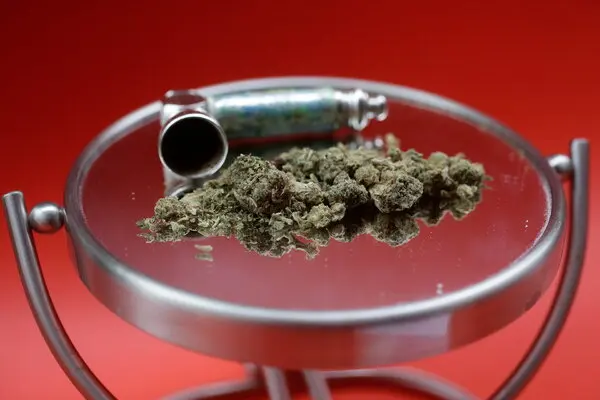A recent study, which examined nearly 7 million health records. Has revealed that males are more susceptible to the impact of cannabis use disorder on schizophrenia compared to females.
This study contributes to our understanding of the relationship between cannabis and mental health. Although the conflicting evidence on this topic continues to generate debates and poses challenges for comprehensive evaluations.
Published in the Psychological Medicine journal on May 4, the study involved an analysis of health records from the Danish population. The findings indicated a notable disparity in the excessive use of cannabis between males and females.
Diverging from previous scientific investigations that explored the link between cannabis use disorder. (defined as problematic cannabis use resulting in significant impairment or distress) and schizophrenia. This study specifically examined whether the association between cannabis use disorder and schizophrenia varied by gender and changed over time and with age.
The researchers meticulously examined the health records of 6.9 million individuals and discovered that by avoiding cannabis use disorder. Up to 30% of schizophrenia cases among young males aged 21 to 30 could potentially have been prevented. Moreover, the study estimated that among males aged 16 to 49, 15% of schizophrenia cases could be averted by abstaining from cannabis use disorder, whereas only 4% of cases would be impacted in females.
These findings strongly suggest an association between cannabis use disorder and schizophrenia. However, it is important to note that cannabis use disorder is not the primary cause of schizophrenia cases in Denmark.
Cannabis Use and Schizophrenia

While males have a higher likelihood of developing schizophrenia than females due to cannabis use disorder. The authors of this study emphasize that it does not imply weaker effects of cannabis on females. The discrepancy in schizophrenia cases between males and females can be attributed to the lower prevalence of cannabis use disorder among females compared to males. In essence, the difference lies in the number of individuals exposed to cannabis, not the potency of its effects on each gender.
The study acknowledges several limitations in its findings. While it examined diagnosed cases of cannabis use disorder and schizophrenia, it did not assess other factors such as frequency of use, THC content, or age of initial use. Additionally, being an observational study, it cannot establish a causal relationship between cannabis use disorder and schizophrenia. However, the study indicates that other factors are unlikely to fully explain the observed associations.
Moreover, although the study considered individuals’ family history of schizophrenia, it did not account for other potential contributors to schizophrenia risks, such as alcohol or other substance use disorders.
The impact of cannabis on mental health continues to be a subject of ongoing debate. Some studies demonstrate a strong connection between cannabis use disorder and conditions like schizophrenia, potentially linked to heavy use or high THC levels. However, other scientific literature suggests no correlation between cannabis use or THC potency and mental health conditions. For example, a recent study published in the journal Addictive Behaviors. They found that individuals who consume cannabis flowers with high THC potency are not at an increased risk of experiencing psychosis-like symptoms.
Effects of Cannabis
Evaluating the effects of cannabis on mental health is a sensitive issue within the cannabis community. Historically, cannabis prohibition policies have contributed to the stigmatization of cannabis users. The media has often portrayed cannabis as a substance that can induce loss of control and mental instability. As exemplified in the 1936 American propaganda film “Reefer Madness“. As well as, claiming that cannabis could act as a gateway to more dangerous drugs.

Consequently, whether heavy cannabis use or consumption of cannabis with high THC potency can lead to schizophrenia or related conditions remains a significant question. This uncertainty can be attributed, in part, to the limited research conducted on cannabis due to its historical illegality. With significant advancements only occurring in recent decades.
Currently, there is no conclusive evidence supporting either side of the argument. Some scientists remain divided on the issue, resulting in a polarized debate.

